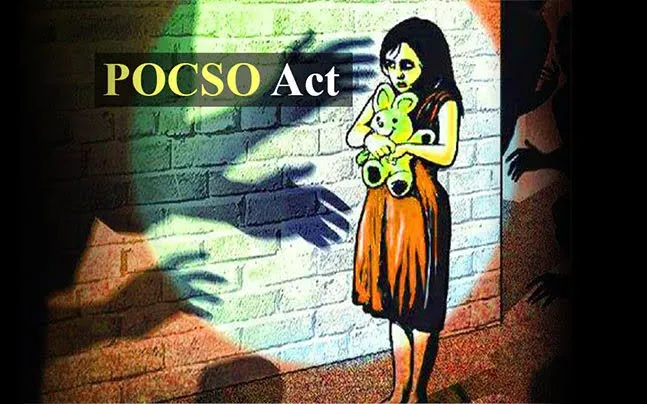POSCO Act
Revolutionizing Child Rights in India: Unveiling the Impact of the POSCO Act

I. Introduction
The grave issue of child rights violation in India
Importance of the Protection of Children from Sexual Offences (POSCO) Act
Child rights violation in India has long been a cause for serious concern. Numerous children across the country have been subjected to various forms of abuse and exploitation, necessitating the implementation of stringent laws to protect their rights. Among these laws, the Protection of Children from Sexual Offences (POSCO) Act holds significant importance. This blog article aims to explore the impact of the POSCO Act in revolutionizing child rights in India, addressing the historical background, key provisions, strengthening of legal safeguards, paradigm shift in addressing child abuse, institutional framework enhancements, impact on reporting and conviction rates, addressing online child abuse, special measures for vulnerable groups, international implications and collaboration, implementation challenges, success stories and impact assessment, public perception and controversial aspects, future outlook and necessary reforms, and concluding with a summary of key findings and a call to action for continued commitment to child rights protection.
II. Background of Child Rights in India
Historical perspective on child rights in India
Prevalent challenges and shortcomings
India’s journey towards ensuring child rights dates back to its independence. The country has made significant strides in this regard, exhibiting commitment through various legislations, policies, and international collaborations. However, challenges and shortcomings persist. Many children continue to face exploitation, especially in the form of sexual offenses. This necessitated the introduction of the POSCO Act as a comprehensive legal framework to safeguard children from such heinous crimes.
III. Overview of the POSCO Act
Introduction and objectives of the POSCO Act
Key provisions and scope of protection
Comparison with previous legislation
Enacted in 2012, the POSCO Act was a watershed moment in the fight against child abuse in India. It aimed to provide a child-centric legal framework that addresses both the prevention and punishment aspects. The Act expanded the definition of child abuse to include various forms of sexual offenses and introduced stringent provisions to ensure swift justice. Unlike previous legislation, the POSCO Act placed an increased emphasis on the protection of victims, offering comprehensive rehabilitative measures.
IV. Strengthening Legal Safeguards
Age determination and consent provisions
Stringent punishment for offenders
Rehabilitation measures for victims
The POSCO Act introduced provisions to determine the age of victims accurately, eliminating ambiguity and ensuring appropriate legal measures are applied. It also emphasized that consent is irrelevant in cases involving children, recognizing their inability to fully comprehend the consequences of their actions. Furthermore, the Act prescribed stringent punishments, including imprisonment and fines, for offenders, acting as a deterrent. Additionally, it placed significant importance on the rehabilitation and support of victims, emphasizing their physical, psychological, and emotional well-being.
V. A Paradigm Shift in Addressing Child Abuse
Raising awareness and sensitization
Shifting societal attitudes towards child abuse
Encouraging reporting and protection mechanisms
The POSCO Act, along with other initiatives, contributed to a noteworthy paradigm shift in addressing child abuse. Efforts have been put forth to raise awareness and sensitize the general population about the prevalence and detrimental effects of child abuse. Additionally, there has been a concerted effort to shift societal attitudes, emphasizing zero tolerance towards child abuse. This, in turn, encourages reporting and promotes the development of protection mechanisms for potential victims.
VI. Enhancing Institutional Framework
Role of law enforcement agencies
Empowerment of Child Welfare Committees
Engaging with schools and educational institutions
The implementation of the POSCO Act required the enhancement of the institutional framework involved in child rights protection. Law enforcement agencies play a crucial role in enforcing the Act and ensuring the swift apprehension of offenders. Additionally, Child Welfare Committees were empowered to address child abuse cases, coordinating with various stakeholders to provide necessary support and guidance. Schools and educational institutions have also been engaged to create a safe environment for children and actively contribute to the prevention and reporting of child abuse incidents.
VII. Impact on Reporting and Conviction Rates
Increase in reporting cases of child abuse
Trends in conviction rates post-POSCO Act
Challenges and improvements needed
The POSCO Act has led to a significant increase in the reporting of child abuse cases. This can be attributed to the awareness campaigns, improved reporting mechanisms, and the fear of legal consequences for offenders. However, conviction rates remain a challenge due to various factors such as the burden of proof, inadequate forensic infrastructure, and witness protection. Addressing these challenges and implementing necessary improvements are essential to ensure that justice is delivered effectively.
VIII. Addressing Online Child Abuse
Emergence of cyber-related offenses against children
The POSCO Act’s provisions to combat online abuse
Technological advancements for detection and prevention
With the advent of technology, a new form of child abuse has emerged: online abuse. The POSCO Act acknowledges this rapidly growing issue and incorporates provisions to combat cyber-related offenses against children. It recognizes the importance of digital evidence and empowers law enforcement agencies to investigate and prosecute offenders engaging in such activities. Technological advancements, such as AI-based systems and collaborations with tech companies, are vital in detecting and preventing online child abuse.
IX. Special Measures for Vulnerable Groups
Focus on children with disabilities
Safeguarding children in conflict areas
Protection for children in custodial situations
The POSCO Act places a special emphasis on protecting vulnerable groups of children. Children with disabilities are particularly vulnerable to abuse and require tailored support and protection services. Furthermore, the Act recognizes the unique challenges faced by children in conflict areas, aiming to safeguard their rights amidst challenging circumstances. Moreover, special provisions are in place to protect children in custodial situations, ensuring their safety and well-being.
X. International Implications and Collaboration
Alignment with international conventions on child rights
India’s commitment to combating child abuse globally
Exchange of best practices and lessons learned
The POSCO Act aligns with international conventions and commitments made by India to protect child rights. It reflects the country’s determination to combat child abuse globally and uphold its moral and ethical responsibilities. Furthermore, international collaboration has played a crucial role in sharing best practices and lessons learned, facilitating the development of comprehensive strategies to address child abuse effectively.
XI. Reflection on Implementation Challenges
Inadequate infrastructure and resources
Cultural and societal barriers
Role of NGOs and civil society in advocacy
The implementation of the POSCO Act has not been without challenges. Inadequate infrastructure and resources pose hurdles to ensuring its effective enforcement. Cultural and societal barriers, such as victim-blaming and lack of awareness, impede the reporting and prosecution of child abuse cases. Nevertheless, the role of non-governmental organizations (NGOs) and civil society in advocacy has been instrumental in addressing these challenges and facilitating the implementation of the Act.
XII. Success Stories and Impact Assessment
Notable cases showcasing successful implementation
Socio-economic impact of the POSCO Act
Evaluation of long-term effects
Several success stories exemplify the successful implementation of the POSCO Act, leading to justice for victims and punishment for offenders. These cases serve as positive examples of how the Act has revolutionized the protection of child rights in India. Additionally, the socio-economic impact of the Act must be evaluated to understand its far-reaching effects. Conducting a comprehensive assessment of the Act’s long-term impact on society and child rights is crucial to further refining and strengthening child protection efforts.
XIII. Public perception and Controversial Aspects
Public opinions on effectiveness and fairness
Media coverage and public discourse
Debated aspects of the POSCO Act
Public perception of the POSCO Act varies, with opinions ranging from praise for its effectiveness to concerns over its fairness. Media coverage and public discourse shape public opinion and influence debates surrounding the Act. Controversial aspects such as the age of consent, punishment severity, and potential misuse of the Act are subjects of ongoing discussion and require careful consideration to strike the right balance between child rights protection and individual rights.
XIV. Future Outlook and Necessary Reforms
Evolving laws to address emerging challenges
Closing loopholes and ensuring effective enforcement
Strengthening rehabilitation and support systems
To address emerging challenges, it is imperative to continuously evolve laws and regulations concerning child rights protection. Identifying and closing loopholes in the legal framework is crucial to ensure effective enforcement of the POSCO Act. Moreover, efforts should be directed towards strengthening rehabilitation and support systems to aid the recovery and reintegration of child abuse victims into society, enabling them to lead fulfilling lives.
XV. Summary and Key Findings
Recap of the transformative role of the POSCO Act
Positive outcomes and areas of improvement
The POSCO Act has played a transformative role in revolutionizing child rights in India. It has provided a comprehensive legal framework that addresses the prevention, punishment, and rehabilitation aspects of child abuse. Since its implementation, there has been an increase in reporting cases, creating awareness, and shifting societal attitudes towards child abuse. However, certain areas, such as conviction rates and infrastructure challenges, demand further attention and improvement to ensure the complete protection of child rights.
XVI. Frequently Asked Questions (FAQs)
What is the POSCO Act and when was it enacted?
How does the POSCO Act contribute to child rights protection?
What are the major provisions and highlights of the Act?
What are the key challenges faced in implementing the Act?
How has the Act impacted the reporting and conviction rates?
What initiatives are in place to address online child abuse?
How does the Act safeguard vulnerable groups of children?
What steps are being taken for international cooperation in combating child abuse?
What are the future prospects and potential reforms in this domain?
XVII. Conclusion
Recap of the significant impact of the POSCO Act
Call to action for continued commitment to child rights protection
In conclusion, the POSCO Act stands as a powerful tool in combatting child abuse and revolutionizing child rights in India. Its implementation has led to notable improvements in the reporting of abuse cases and prioritizing the welfare of victims. However, there are still challenges to overcome and further reforms to undertake. It is vital for all stakeholders to remain committed to the cause and work collectively to ensure the effective enforcement of the Act and the protection of every child’s rights.

